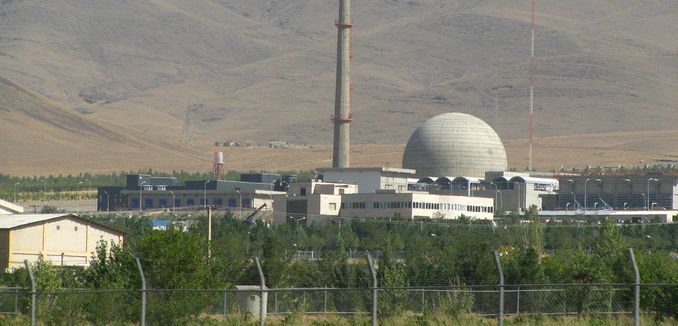Iran has once again violated the cap on the amount of heavy water, nuclear runoff that can be used to produce weaponizable material, it may possess under the terms of the nuclear deal, Reuters reported on Wednesday.
This is the second time since the implementation of the nuclear deal in January that Iran exceeded the 130 ton threshold on heavy water. The United States already agreed to purchase 32 tons of heavy water from Iran in April in an effort to allow the Tehran to come back into compliance with the agreement.
“On 2 November 2016, the director general [of the International Atomic Energy Agency] expressed concerns related to Iran’s stock of heavy water to the vice president of Iran and president of the Atomic Energy Organization of Iran,” the United Nations’ nuclear watchdog noted in a confidential report obtained by Reuters.
In response, Iran claimed that it planned to ship the heavy water out of the country in the coming days.
Reuters’ report about the latest Iranian violation of the nuclear deal comes days after an Iranian parliamentary committee claimed that the country adhered to all of its obligations under the nuclear deal.
On Wednesday, Iranian Foreign Minister Mohammed Javad Zarif insisted that President-elect Donald Trump was obligated to abide by the terms of nuclear deal. Zarif did not address the revelation about the Iranian violation.
After Iran was first found to have surpassed the cap on heavy water in February, Olli Heinonen, a former deputy director-general of the IAEA, wrote that Iran was obliged to halt production of the material if it neared the 130 ton limit.
“The real concern is Iran’s excess production above the agreed-upon limits,” Heinonen wrote. “Iran should have simply halted heavy water production until it was able to comply with the agreement. After all, the JCPOA’s nuclear inventory limits were set for a purpose. Iran is continuously enriching uranium and producing heavy water, and exceeding the JCPOA’s limits threatens to cut its nuclear breakout time – namely the time needed to produce material for a nuclear bomb.”
A report released in September by the Institute for Science and International Security, a leading nuclear nonproliferation think tank, revealed that the U.S. had made a secret agreement with Iran that granted it exemptions from certain limits spelled out in the nuclear deal. Allowing Iran to evade the limits on its production of heavy water or low enriched uranium could shorten its breakout time to developing a nuclear bomb if it chose to back out of the agreement.
The White House has in the past rejected charges that Iran violated the commitments it made in the nuclear deal. While Iran was prohibited from testing advanced centrifuges under the interim nuclear deal, the IAEA found in November 2014 that Iran broke the agreement by feeding uranium oxide into an advanced centrifuge. The U.S. administration overlooked the violation in March 2015, calling it an error rather than a deliberate violation.
Last June, just before the nuclear deal was reached, The New York Times reported that Iran’s stockpile of low-enriched uranium was too high. The Obama administration dismissed the Times report as “not true.” The Institute for Science and International Security criticized this response, observing that “it tends to confirm the views of critics that future violations of a long term deal will be downplayed for the sake of generating or maintaining support for the deal.”
[Photo: Nanking2012 / YouTube ]




